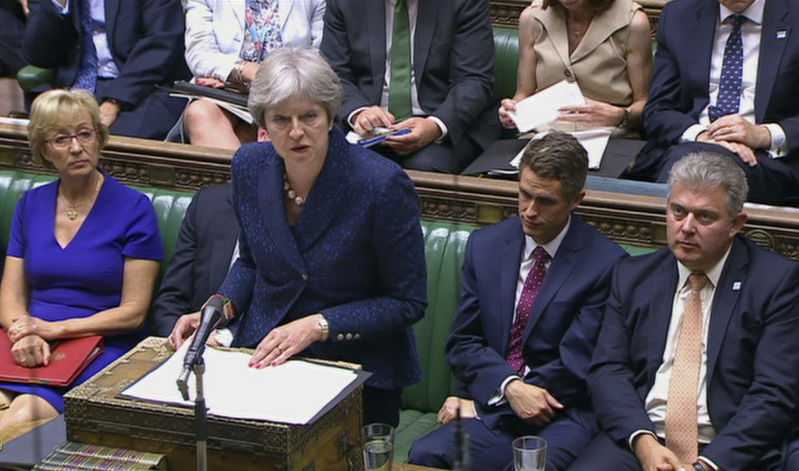Britain’s foreign minister steps down as May faces mounting Brexit crisis
10 July, 2018

British Prime Minister Theresa May dug in her heels Monday after the resignation of two top government ministers over Brexit negotiations whipped up a storm that threatened to topple her fragile minority government.
Foreign Secretary Boris Johnson quit with a resignation letter accusing May of flying “white flags” of surrender in negotiations with the European Union. He said “the Brexit dream is dying, suffocated by needless self doubt.”
Johnson followed Brexit Secretary David Davis out the door as a hard-won government consensus on future trade ties with the bloc disintegrated less than three days after it was forged, and nine months before Britain is due to leave the EU.
If Davis’ resignation rattled May, Johnson’s shook the foundations of her government. The tousle-headed blond Johnson is one of Britain’s best-known politicians, and one of the most prominent advocates for Brexit.
Some euroskeptic lawmakers dream of replacing May with a staunch Brexiteer such as Johnson, a populist, polarizing figure who has never made a secret of his ambition to be prime minister.
“It is as though we are sending our vanguard into battle with the white flags fluttering above them,” Johnson wrote in a letter that underscored his credentials as a champion of full-speed Brexit. “The government now has a song to sing,” he said. “The trouble is that I have practiced the words over the weekend and find that they stick in the throat.”
Hunt to replace Johnson
May named one of her most loyal ministers, Jeremy Hunt, to replace Johnson in the job of Britain’s top diplomat. Hunt had been health secretary, and is a leading government backer of a compromise “soft Brexit.”
May met with Conservative lawmakers in a packed room at Parliament, in a bid to calm the feverish atmosphere in the deeply divided party.
Under Conservative Party rules, a confidence vote in a leader can be triggered if 48 Conservative lawmakers write a letter requesting one. But leading pro-Brexit lawmaker Jacob Rees-Mogg said he didn’t think she would face a leadership challenge.
“My concern is about the policy rather than the individual,” he said.
With Britain due to leave the 28-nation bloc on March 29, 2019, EU officials have warned Britain repeatedly that time is running out to seal a deal spelling out the terms of the divorce and a post-split relationship.
Two years after Britain voted 52 percent to 48 percent to leave the European Union, May is trying to find a middle way between two starkly differing views —within her party and the country — of the U.K.’s relationship with Europe.
Pro-Europeans want to retain close economic ties with the bloc and its market of 500 million people, while some, but not all, Brexit supporters want a clean break to make it possible to strike new trade deals around the world.
The resignations came just days after May announced Friday that she had finally united her quarrelsome government behind a plan for a divorce deal with the EU.
Government unity began to fray within hours. Brexit-supporting lawmakers were angered by the proposals, saying they would keep Britain tethered to the bloc and unable to change its rules to strike new trade deals around the world. They also argued that the proposals breach several of the “red lines” the government had set out, including a commitment to leave the EU’s tariff-free customs union.
